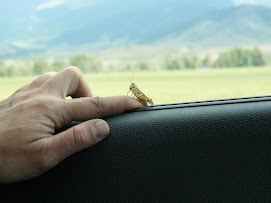I've been meaning to write on intentional community for a while.
Living in community is one of the main reasons I chose to do MVS instead of the SALT program (which is a 1 year service abroad organization through the Mennonite Central Committee). In MVS, volunteers live together in a common space and share food, money, chores, sometimes a car, etc etc etc. I chose to come to Baltimore because our house is such a unique community. Instead of just having MVS volunteers, we have 13 housemates from 6 different countries. We have 5 refugees, 4 Mennonite volunteers, 1 Brethren volunteer, and 4 community members/ renters. We share chores, space, basic foods like flour, sugar, and spices, and of course our lives. When I have a hard day, there is always someone in the kitchen who will listen to me talk about it. When I am excited about something, someone will probably be in the living room to be excited with me. Community is a beautiful thing- when it works. But like everything else in the world, it doesn't work all the time.
Before there was sin in the world, God saw that it wasn't good for man to be alone. A lot of people take this verse to mean that God wants everyone to get married, but those people are idiots. Not everyone is supposed to get married, and marriage is not the most sacred institution or relationship on earth; one's relationship with God is. I think far fewer people need to get married and instead devote their lives to service and, yes, community. But I digress. I LOVE that after God makes (evolves) the world, the animals, and humans, He looks and sees that it isn't good enough to have just one person. It isn't sin that separates man from God or the animals, it's simply how we're made: we need each other. There is nothing wrong with feeling lonely. Wanting to be with others isn't weakness, it's instinct. Community is huge throughout the whole Bible. The Hebrews are selected and saved AS A PEOPLE. Jesus intentionally forms a tight-knit core group of disciples. Disciples are always sent out in pairs to go serve and heal and preach. The early church lived together and shared everything in common. Paul's epistles are written to entire church bodies and communities of believers. We were never meant to go it alone, and the gospel looks and feels different when it is lived out in it's proper context- that is, in community.
That being said, let me also say that community is really, really, really hard. Forming a "community" of a Bible study or even a group of friends while I was in college was an entirely different process than LIVING in community. Senior year I lived with 9 other girls, but I CHOSE those girls. We knew each other and made the conscious decision to live together. I did NOT chose the people I live with now, and to be honest, if I had a choice, there are some that I would not chose to live with. But I wasn't given a choice, I was given a family and asked to function with respect and even love within it.
I would say about 60- 65% of the time, my community is a good thing. When I'm cleaning the kitchen and someone helps me, even though it isn't their kitchen cleaning day, or when someone makes me tea because I'm sick, or teaches me to cook a food from their country, or shares a story about life before Baltimore, it feels like we really are one unit, here to serve each other.
But then there is that pesky 35- 40% of the time. The other times. The times when for the 6th time in a row I didn't use the last of the toilet paper, but the toilet paper is gone with no new roll in sight (yeah, the toilet paper fairy who magically replaces the roll when you use the last of it and leave the cardboard there? That's me). The times when no one communicated about using the car and now it's gone and no one knows where it is. The times when I just want to sit by myself and watch the Office online in my room and a housemate WILL NOT LEAVE or STOP TALKING about something irrelevant. Those times are hard. Really hard.
More than that, though, I've been shocked by how painfully lonely living in community can be. After all, loneliness isn't about being around people or not being around people; it's about feeling loved and understood and known and wanted. Living with 13 people doesn't mean that 13 people love and understand and know and want me, it just means they're obligated to give me phone messages and save me some of their dinner.
This community has not been what I expected or, to be honest, what I wanted. But more and more, at work and at home, I'm learning to die to myself and thrive on service. My life is not my own, and nothing drives that point home more than working 8 hours at a homeless shelter and coming home and having to cook dinner for all the volunteers and clean the bathroom, putting my needs and desires aside. I don't have the luxury of taking a nap or going to Starbucks or having cereal for dinner. I have certain obligations I need to do and certain relationships that I need to nurture, like it or not. Sometimes I do it well, and sometimes I don't. Sometimes other people in the house take care or me and nurture me well, and sometimes they don't. But for now, it works more often that it doesn't, and it's enriching, even when it's hard. And maybe that's all we can ask for.
2013 RHHP Thanksgiving dinner
12 years ago

